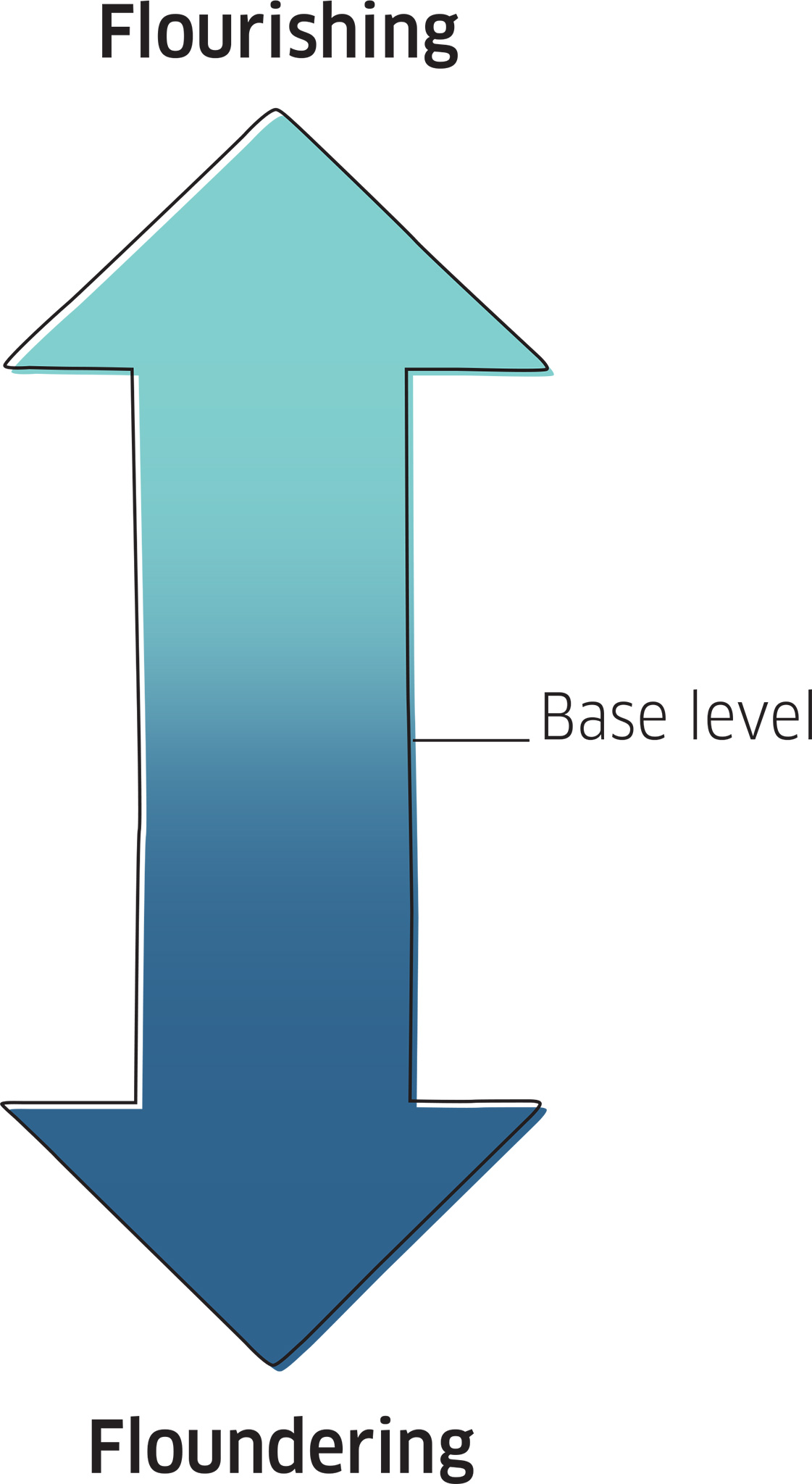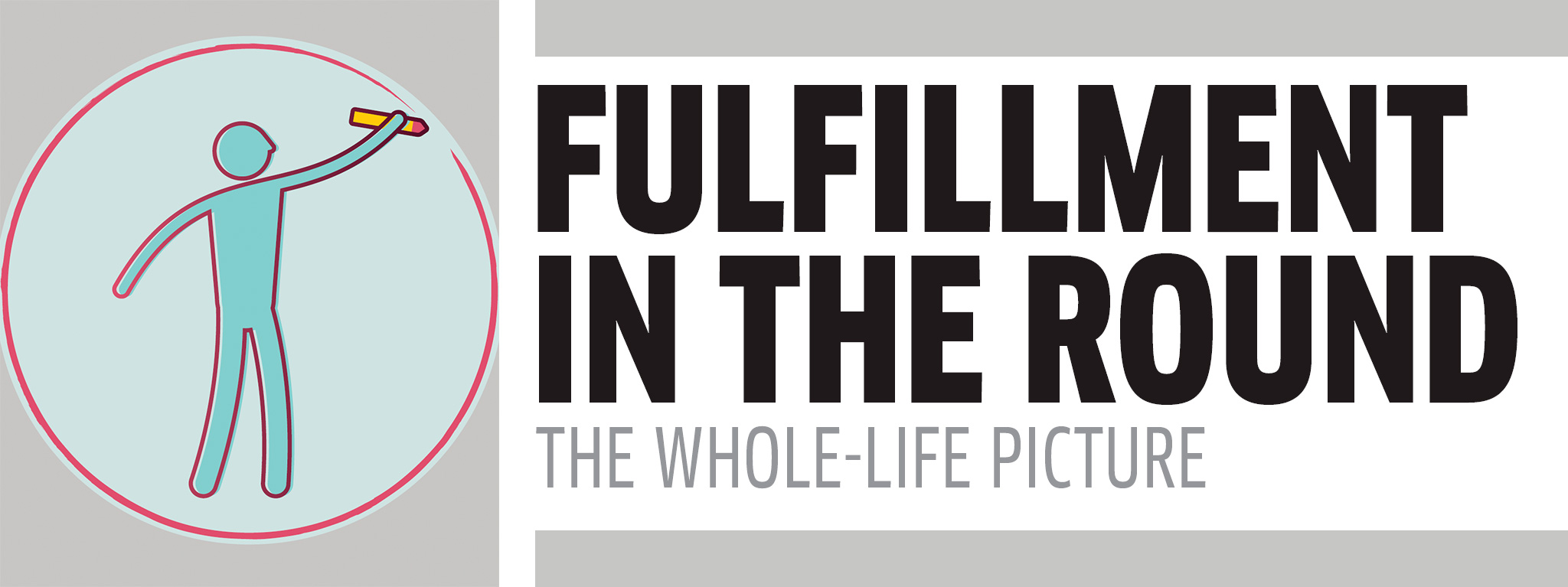
When we think of success, it’s easy to focus too much on our careers. Enjoying our work can be part of it, but in the end, we need to think about our needs in a much broader sense.
What do we need to make us feel successful? It’s likely that your first answer will include a lot of things you want to avoid: you don’t want to struggle with money and finances, you don’t want to end up lonely, you don’t want to do boring and repetitive work that offers little opportunity for development. That’s because we have a natural “negativity bias”: we tend to pay more attention to and learn more from negative experiences and information than positive ones. This is how the human brain evolved to facilitate our basic survival: if you take no notice of a saber-toothed tiger, you probably won’t live to have many descendents. This bias does not serve us well in the current world, though; more importantly, the negativity bias diminishes our ability to experience well-being.
Positive psychology
American psychologist Martin Seligman is a leading developer of the field of “positive psychology.” Prior to the advent of positive psychology, the focus of research and practice in psychology was on areas related to dysfunction—depression, neurotic behavior, anxiety, and all forms of mental and behavioral tendencies that were causing the individual, their family, or the community “pain or suffering.” Traditionally, psychology was more focused on how to eliminate suffering rather than what creates a life that is fulfilling and “worth living.” Seligman focuses on what he calls “well-being”: an overall sense of emotional health and happiness that makes a human being truly successful.
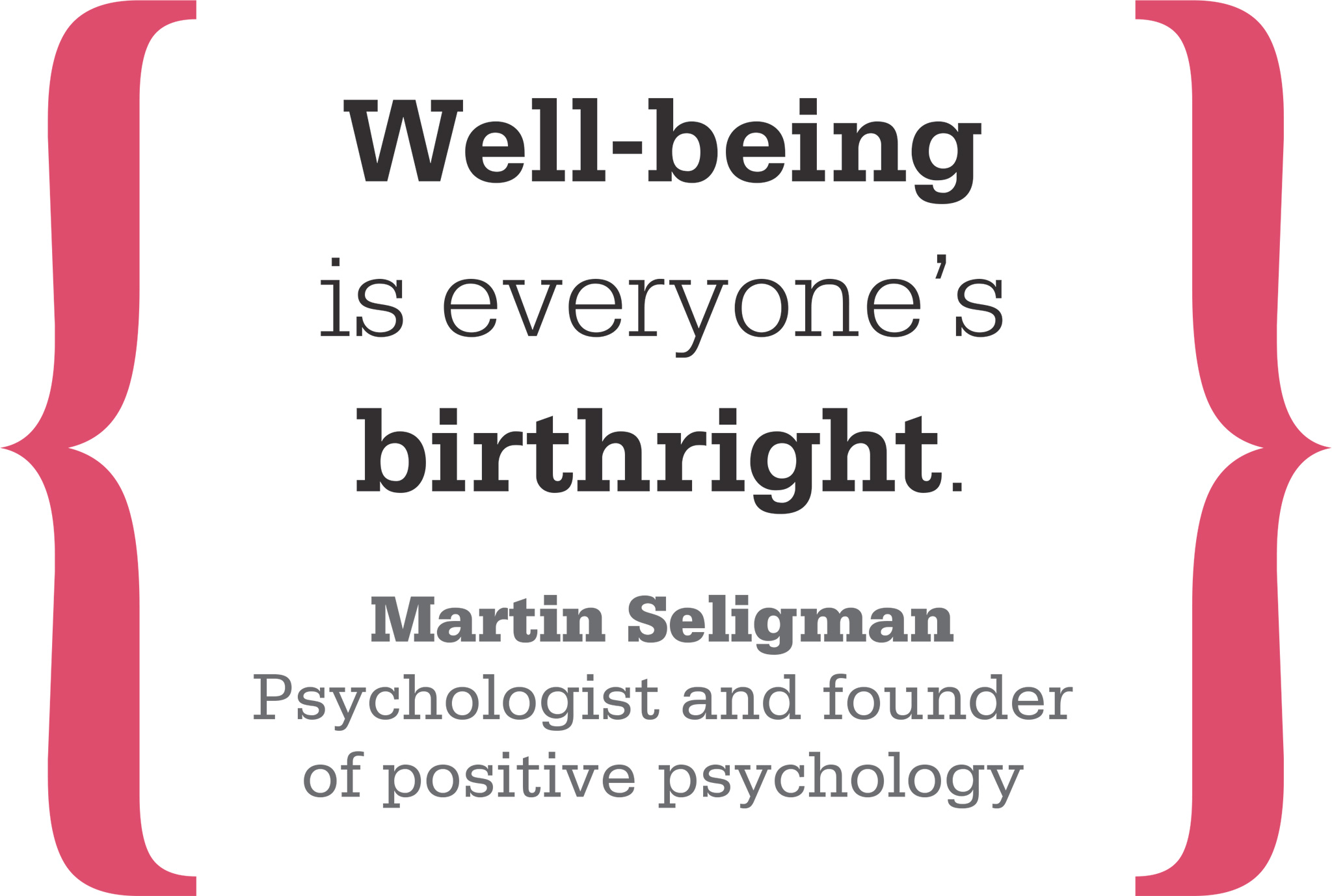
The value of accomplishment
If you’re set on success, the “A” for “Accomplishment” in PERMA will likely mean a great deal to you (see also “Achievement versus accomplishment,”). The Positive Psychology Foundation observes that, along with a sense of pride, accomplishment can give us other things as well:
1 Accomplishment creates a positive structure for our memories. Days when nothing much happened tend to slip out of our memories, leaving little behind of that piece of our finite and precious lives. If we spend time working toward specific goals, on the other hand, then those days are part of a pattern that we can remember with satisfaction for years to come. Accomplishment is all about being able to look back and feel good, and this can help build a rich memory bank.
2 Accomplishment encourages gratitude. Very few of us can accomplish things entirely on our own. Research confirms that people who regularly feel grateful enjoy better mental health and quality of life. If you can look at what you’ve done and be thankful for everyone and everything that helped you get there, that’s fuel for happiness.
3 Accomplishment makes us more confident about the future. There is always another challenge to face, and even the strongest and most cheerful of us have moments when we doubt we’ll get through a difficult patch. Having had the experience of overcoming obstacles in the past is one of the best ways to build our confidence and the belief that we can handle obstacles as they arise in the future.
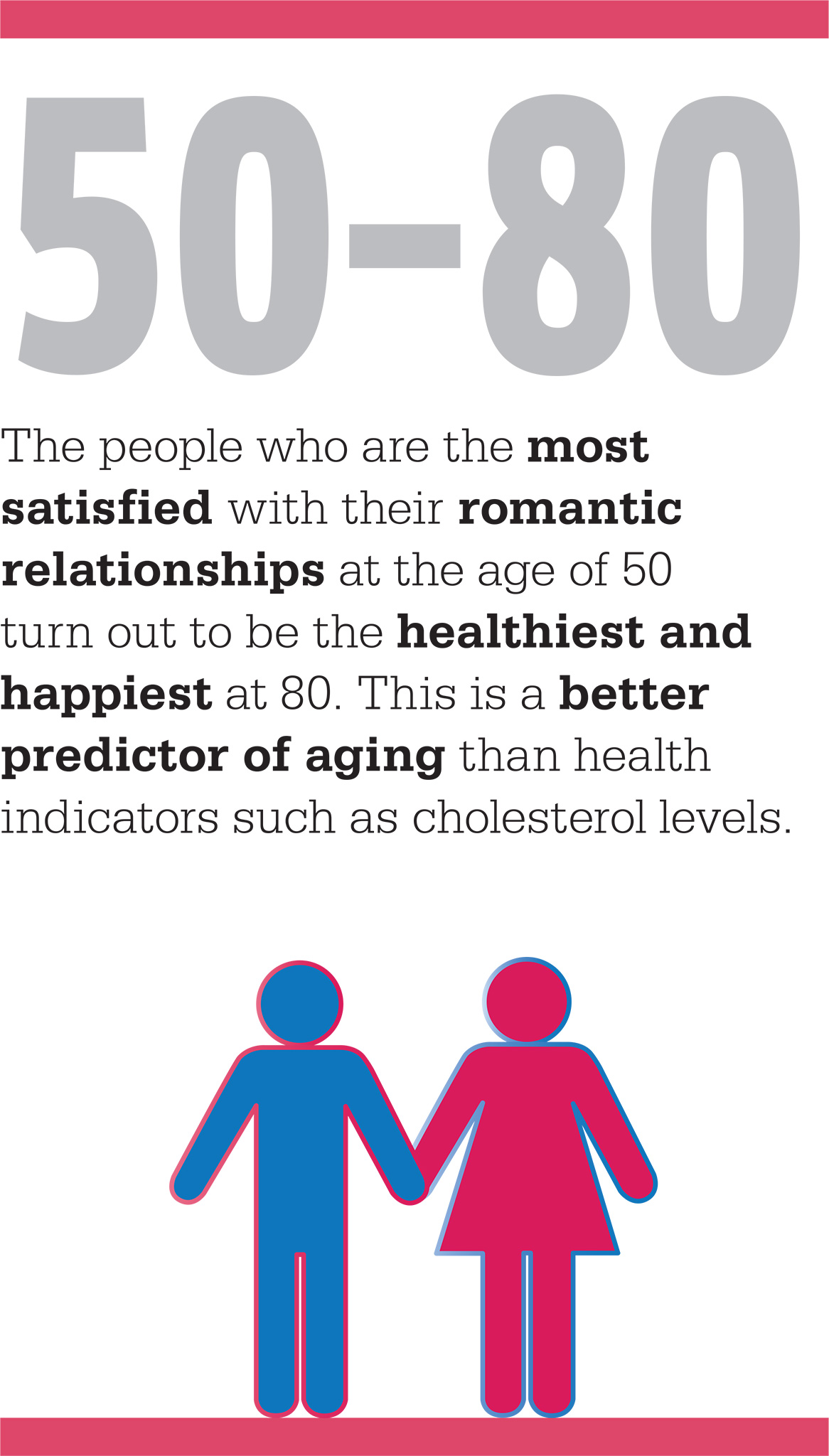
real well-being
A useful touchstone in positive psychology is the “PERMA” model of well-being. Happiness, Martin Seligman argues, is not just one emotion; there are five factors that contribute to the experience of well-being:
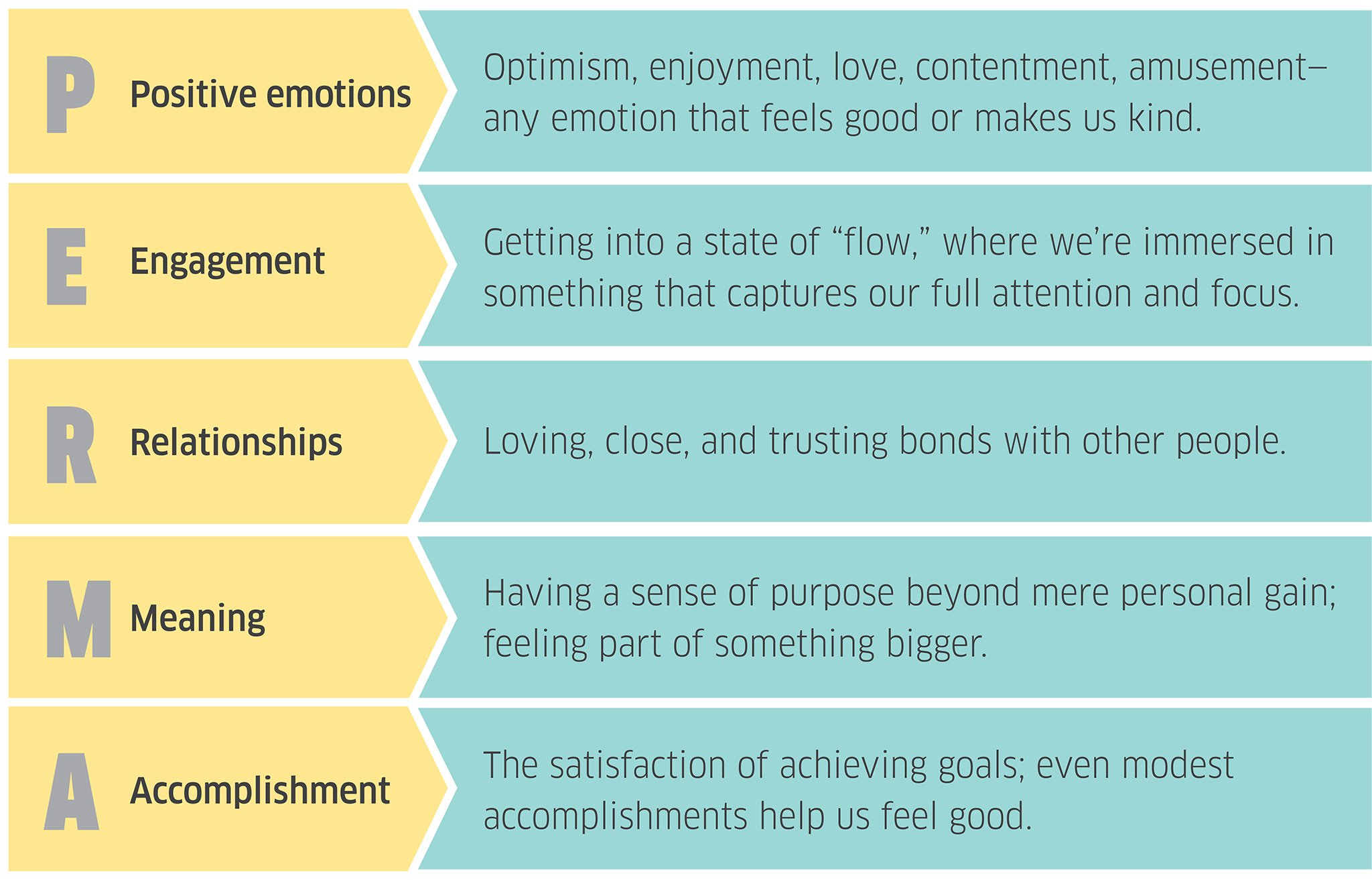
 The benefits of PERMA
The benefits of PERMA
The PERMA theory (see “Real well-being,”) is a key principle. All of the five aspects of happiness are things we pursue for their own sakes: they are valuable in themselves, or “intrinsically” rewarding.
- ✓ Positive emotions, while by their nature fleeting, can make us more open, resilient, creative, and observant—even physically healthier.
- ✓ Engagement comes when we’re feeling confident about our skills. It can be such a pleasant experience that we end up honing these skills for fun rather than as a duty. The better you know your strengths, the more you’ll be able to get into the flow.
- ✓ Relationships are essential. This includes those with family, friends, romantic partners, colleagues, and your community. Without other people, successes ring hollow.
- ✓ Meaning makes us more satisfied, confident, and robust. Sometimes you’re already doing something you consider meaningful, and sometimes you may need to work at finding the meaning, but this is something you can develop.
- ✓ Accomplishment is something all success-focused people care about. Positive psychology suggests that the key quality you need to succeed is perseverance, but actually all the other aspects of PERMA help to make this easier. If you’re tired, isolated, or sad, it’s hard to stick to challenges; if you’re flourishing, it becomes a lot easier.
We all want to be successful because we think it’ll make us happy. It’s good to remember, though, that it can work the other way: being happy can also help us to succeed.
 How happy are you?
How happy are you?
A 2014 Australian study asked student volunteers a series of questions to test their PERMA ratings. Try them and see how they come out for you. Life is fluid, so it’s likely that you’ll be able to give more positive answers in some areas than others, and a year from now you may find that the balance has changed. You’re most likely to feel successful, though, if you have at least some good experiences in each aspect of PERMA, so if you have a nagging sense that something’s missing, these questions might be useful to pinpoint what you need to develop:
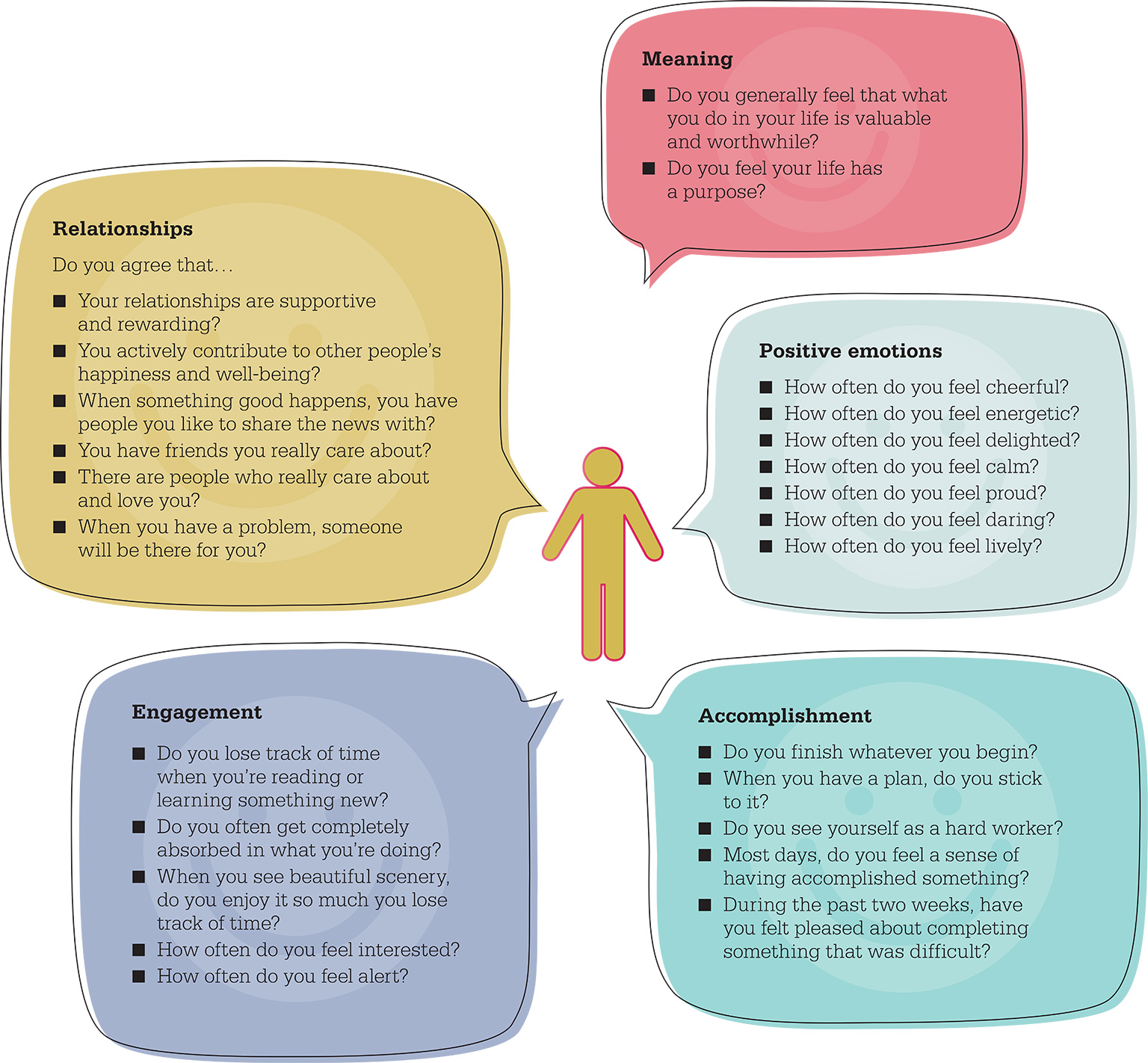
 Achievement versus Accomplishment
Achievement versus Accomplishment
Who decides if you’re a success? Positive psychologist Patty O’Grady identifies this key difference:
- Achievement is when we meet a standard imposed by others
- Accomplishment is when we reach a goal we personally value
A lot of contemporary society is focused on achievement: pass that exam, win that game, ace that interview. One reason is simply that these are easy to measure—you either get an “A,” score a goal, get the job, or you don’t. But precisely for this reason, such measures can feel reductive, and ultimately unsatisfying: they depend on other people’s ideas of how to measure achievement, not your own. What’s really rewarding is to do something because it will accomplish a goal you think is important, be it personal, professional, artistic, technical, or whatever seems significant to you. This often involves externally measurable successes, but the real reward is your own self-approbation, and the ability to thrive as a whole person. As O’Grady puts it, “Achievement is a by-product of accomplishment.”

Better than okay
Positive psychology founder Martin Seligman argues that for most of its history, the discipline of psychology has focused on mental illness and unhappiness. Its goal has been to bring people up the “zero line” of simply not being sick. Positive psychology was developed with the aim of addressing the other side of the equation: what raises us above that base level to a state of true well-being? That is, how can we be actively flourishing, rather than just “all right”?
